Lists
by Powell's Staff, September 27, 2023 9:34 AM
This month, we have ten new works in translation that we are so excited to recommend to you (including one newly out in translation!). On this list, you’ll find the story of “seemingly close, lifelong friendship” from France; a tender, heartbreaking novel from a late Brazilian author; a French treatise on creativity in crisis; two Japanese horror collections, one filled with a "creeping sense of wrongness,” and the other “haunting and surreal;” bruising autofiction from a queer, Russian poet; a French novel about the resilience and strength found among community; a May-December romance from a French Nobel Prize winner; and a novel from Mexico that’s “mesmerizing, hypnotic, dream-like.” All would make for perfect companions during the many gloomy afternoons this coming season promises.
 by Anne Serre (tr. Mark Hutchinson)
by Anne Serre (tr. Mark Hutchinson)
Translated from the French
I'd been eyeing for some time Anne Serre's slim, beautiful volumes through New Directions before finally picking this one up, and I'm so glad I did. A Leopard-Skin Hat is the story of a seemingly close, lifelong friendship between Fanny, the wearer of the hat, and "the Narrator." Although the Narrator admits to being flummoxed sometimes by the multi-faceted Fanny, he nonetheless feels confident in his assessment of her as a strange and brilliant, flawed and tragic figure. When we start to get flashes of Fanny's perspective, as well as that of the writer outside of the action, it gets easier to read between the lines of what the Narrator has been telling us. Serre paints a portrait of a kind of person I almost never see depicted, someone who is at least partly unknown to herself and certainly unknowable in her entirety to others — and this begs the question as to whether anyone can truly know anyone else in this world. It's an exciting novel, quite original and unique; it left me satisfied, yet breathless for more from Serre. — Jennifer R.
 by Victor Heringer (tr. James Young)
by Victor Heringer (tr. James Young)
Translated from the Portuguese
The Love of Singular Men is a stunning novel by the late Brazilian author, Victor Heringer. Told from the perspective of the Camilo as he reflects on his teenage years and a relationship he had with another teenage boy, Cosme. The story is often told playfully (it’s infused with diagrams and photographs, sketches and emojis), while ultimately being tender and heartbreaking. It’s incredibly tragic that we won’t have more books from Heringer, who passed away before his thirtieth birthday, but I’m grateful for this translation, beautifully done by James Young. — Kelsey F.
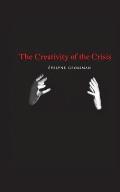 by Évelyne Grossman (tr. Rainer J. Hanshe)
by Évelyne Grossman (tr. Rainer J. Hanshe)
Translated from the French
This book’s title says it all — author, editor, and literary theorist Évelyne Grossman writes about the creativity that emerges during critical times, and how that creativity can destabilize and bewilder as much as it can generate hope and artistic freedom. Ably translated by Rainer J. Hanshe, this is a book that feels especially important in our current cultural landscape.
— Olive C.
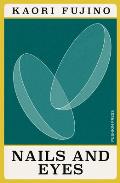 by Kaori Fujino (tr. Kendall Heitzman)
by Kaori Fujino (tr. Kendall Heitzman)
Translated from the Japanese
Comprised of three stories, Fujino's literary horror collection is certainly unsettling. These are the types of stories that seem innocuous in the comfort of a busy café — but spend an evening at home alone with them and you won't be able to dismiss the creeping sense of wrongness. Fujino’s writing fills you with anticipatory dread for whatever intangible horrors await just outside of view. — Charlotte S.
 by Oksana Vasyakina (tr. Elina Alter)
by Oksana Vasyakina (tr. Elina Alter)
Translated from the Russian
This book absolutely delivers on the promise of its simple title: it is a bruising, beautiful book that I couldn’t put down, even as each page pulsed with the heartache of existing in an unforgiving world. The narrator, Oksana, is a queer, Russian poet whose mother has recently passed. As she travels to their former home of Siberia, she thinks about her past with her mom and her mom’s tumultuous relationships; Oksana’s own complicated romantic history; the act of writing and the power of language; inheritance, work, survival, identity… The list goes on. Vasyakina is such an exciting, fresh voice, and Elina Alter has done an incredible job translating this novel. Everyone should read Wound. — Kelsey F.
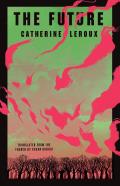 by Catherine Leroux (tr. Susan Ouriou)
by Catherine Leroux (tr. Susan Ouriou)
Translated from the French
In an alternate future where France never surrendered Detroit, Gloria moves into the house where her daughter was killed, in order to find answers and her missing grandchildren. In this Detroit, the children rule their own kingdom in the trees, rivers poison and heal people, burned-down houses regenerate themselves, the young and old protect the places and people they love with their lives. This incredible work tackles problems both fictional and very real. Alongside the poisoned rivers and regenerative houses, Leroux also beautifully addresses ongoing racial and economic injustice, pollution, and violence. However, in this same struggle, we find strength, resilience, and power in community. In the strange world we live in today, this book is important and a great reminder that we are strongest as a community. — Aster H.
 by Annie Ernaux (tr. Alison Strayer)
by Annie Ernaux (tr. Alison Strayer)
I am proudly in my Ernaux Era — meaning I’m breezing through her oeuvre, one beautifully written, emotionally exacting book time. The latest release from Seven Stories, The Young Man, has Ernaux writing about an affair she had with a man thirty-ish years younger than her. The way she writes about the affair — what she introduces him to, what he introduces her to, how simultaneously consuming and not consuming the affair is, while revealing its layers, stories repeating across time — is, as all of her books tend to be, so sharp and emotionally astute. — Kelsey F.
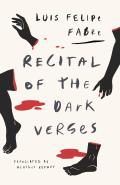 by Luis Felipe Fabre (tr. Heather Cleary)
by Luis Felipe Fabre (tr. Heather Cleary)
Translated from the Spanish
Mesmerizing, hypnotic, dream-like: although this would seem to be the simple tale of a bailiff and two lowly attendants, Diego and Ferran, on their way to and from a Spanish monastery in 1591 to fetch the body of a reputed saint (Juan de la Cruz, aka John of the Cross) for a rich and influential patroness on behalf of the Church, it is anything but. What actually transpires is almost indescribable, but here goes: a kind of dark fortnight of the soul for everyone involved, each according to their predilections and peccadilloes, in which everything to do with their mission is interrogated — faith, the Inquisition, the pleasures of the body versus those of the soul — but so is the very nature of reality. Running through it all is fabulous poetry written by the possibly saintly, possibly heretical Fray Juan de la Cruz, a convert from Judaism from the days when you converted or were expelled from Spain. It's a truly beautiful book, and I can barely believe it exists in this world; it really feels like some kind of magic trick has been pulled off as one reads it. Kudos to the translator, Heather Cleary, for rendering it in gorgeous prose, as well as for undertaking fresh translations of these 16th-century poems. Recital of the Dark Verses is trippy and like nothing else. — Jennifer R.
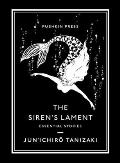 by Jun'Inchiro Tanizaki (tr. Bryan Karetnyk)
by Jun'Inchiro Tanizaki (tr. Bryan Karetnyk)
Translated from the Japanese
Haunting and surreal, these three short stories by Japanese modernist writer Jun'ichiro Tanizaki (1886-1965) have been translated into English for the first time. Each of these parable-like stories explore the destructive nature of obsessive, all-consuming love. The longest and most engaging is 'Killing O-Tsuya.' Set in Edo-period Tokyo, a young man's love for his employer's daughter leads them both down a spiraling path from virtue to vice. In their quest to be together at all costs, they descend into a life of murder and debauchery, eschewing their responsibilities to their families and society. The extent of their moral decay highlights the age-old question of nature versus nurture, making me wonder if the seeds of their downfall were there from the very beginning. — Alyssa C.
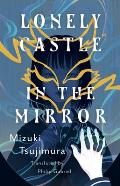 by Mizuki Tsujimura (tr. Philip Gabriel)
by Mizuki Tsujimura (tr. Philip Gabriel)
Translated from the Japanese
Lonely Castle in the Mirror is the heartwarming, cozy read that many of us need in our lives. Written with such care, Lonely Castle in the Mirror's unique approach to discussing anxiety and depression is infused with compassion and hope. This is a story I think will especially resonate with Gen-Z who've come-of-age in a truly turbulent, isolating time. A perfect read for these rainy days of early fall. — Charlotte S.
÷ ÷ ÷
For more literature in translation, check out our recommendations from July and August.
|